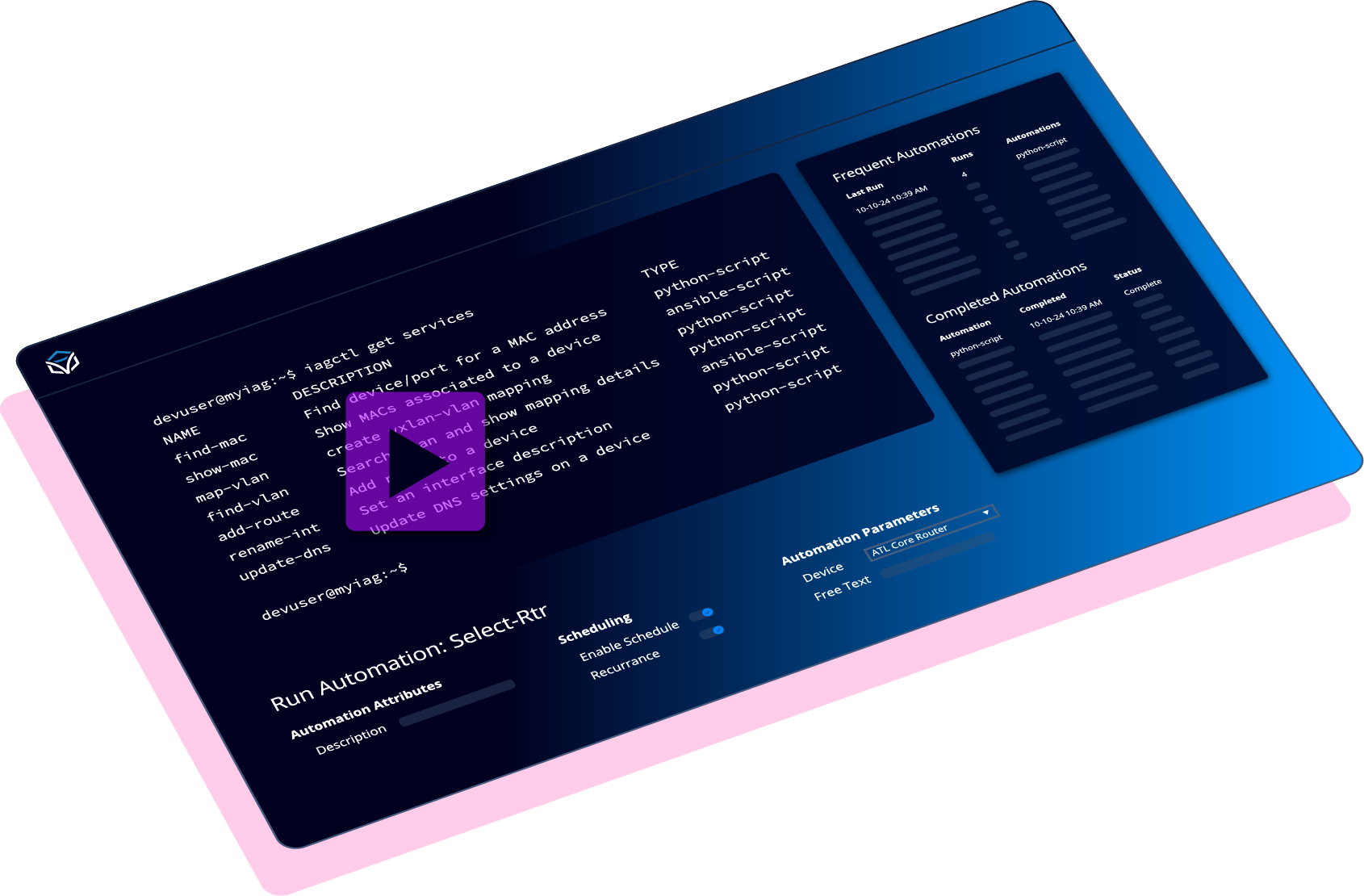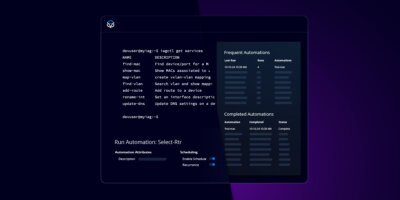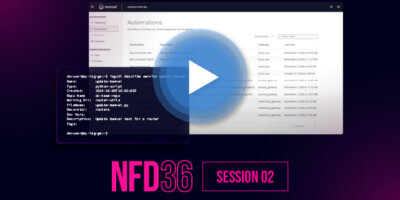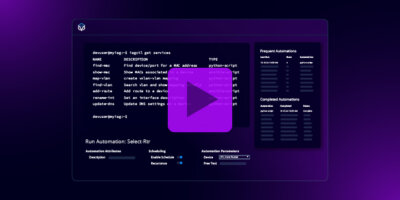Dynamic execution environment for all your Python, Playbooks, & Plans.
Your Script Sprawl is Blocking Automation at Scale
Operational Overhead
Managing different servers, dependencies, and libraries eats up valuable time that could be spent building automations.
Lack of Standardization
Inconsistent practices and non-standardized environments create fragmentation in your tech stack, leading to delays, inefficiencies, and errors. Every variation adds friction to the automation process.
Access Control Chaos
Scattered permissions across scripts, libraries, and environments make it difficult to control access effectively. The lack of structured access management introduces risks and disrupts workflows.
Developer Dependency
Without a self-service system in place, developers are bogged down in support tasks whether it’s access to scripts, troubleshooting issues, or setting up environments – keeping engineers from building automations.
Scaling Infrastructure Is a Heavy Lift
Building infrastructure to support resilient, geo-distributed, and highly available automation is complex. Managing clusters, balancing workloads, and ensuring uptime across environments quickly becomes overwhelming.
Solve Your Automation Challenges with the Itential Automation Gateway
Itential is built for the reality that most teams begin their automation journey with Python scripts, Ansible Playbooks, and open-source tools like NetBox. Itential Automation Gateway (IAG), the on-premises execution layer of the Itential Platform, provides a way to operationalize this work without re-platforming or disrupting familiar tools, delivering:
Stay Secure
Secure execution environment for Python, Ansible, and custom automations.
Enterprise-Grade Controls
Including RBAC, audit logging, and secrets management.
Expose Automations
API exposure of automation to other teams and systems.
Integrate Automations
Native integrations with Git, CI/CD, and source of truth tools.
Keep Writing Scripts.
We’ll Build the Environments.
With IAG, every automation gets its own dynamic, ephemeral runtime environment — built instantly, used once, and always consistent. Whether you’re running a script now or scheduling it for later, each execution is guaranteed to run the same, no matter where or when. Automations stay current with seamless Git updates, and centralized management ensures everything runs smoothly without configuration headaches.
- Dynamic environments
auto-created for every automation. - Centralized management
for Python, Ansible, OpenTofu, and more. - Real-time Git sync
ensures automations stay current. - Scheduling
for one-time or recurring tasks. - Concurrent execution
to run multiple services simultaneously.
Standardize Scripts. Deliver as Services.
IAG eliminates script sprawl by transforming automations into structured, service-based models. Whether built with Ansible, Python, or OpenTofu, automations are standardized with common inputs for easy management and execution. Engineers build with their preferred tools, while operations teams consume these services without needing to understand their underlying complexities.
- Service-based automation
framework for structured, reusable automations. - Centralized platform
to manage Ansible, Python, and OpenTofu scripts. - Standardized inputs
enable teams to run automations with guardrails. - Seamless access
allows operators to execute tasks without developer support. - Unified management
simplifies updates, monitoring, and troubleshooting.
Control Access, Minimize Risk. Automate Securely.
Managing access across scripts, libraries, and environments doesn’t have to be chaotic. IAG provides enterprise-grade governance with role-based access, ensuring only the right users can view, manage, and execute automations. With encryption, authentication, and detailed auditing, you can reduce risk, maintain compliance, and streamline automation securely.
- User management
for creation and management of accounts with role-tied permissions. - Detailed auditing
to monitor every automation execution with complete logs. - Encryption
to protect data with SSL/TLS for secure access. - Authentication
can integrate with SAML or use local accounts for user validation – or use them both! - Authorization
can dynamically apply role-based and group-based access rules to users when they authenticate. - API-driven integration
includes unlimited setup for OAuth2 client end-points to secure integration with 3rd party applications.
Self-Serve Your Automation, Without the Developer Bottlenecks.
When connected to the Itential Platform, automations become reusable services with standardized inputs, giving operators self-service access without needing to understand the underlying code. Developers stay focused on building, while teams can securely execute automations without delay.
- Service-based structure
lets teams run automations without needing code expertise. - Visibility
into who runs automations and where issues occur. - Self-service access
frees developers to focus on innovation.
Integrate Automations into Platforms, Pipelines & Orchestrated Workflows.
IAG acts as a secure execution layer between your pipelines, platforms, and the Itential Platform. Whether you’re triggering a workflow from your CI/CD system, integrating with an ITSM process, or executing scripts and playbooks on-prem, IAG ensures every action is governed, tracked, and connected to a broader orchestration strategy.
- Execute automations
in your environment without giving up control — IAG runs where your infrastructure lives. - Integrate with your piplines
like GitHub Actions, Jenkins, or Terraform to trigger workflows at any stage. - Bridge scripting & orchestration
by securely running Python, Ansible, or custom scripts in sync with the Itential Platform. - Track every change
with full logging, rollback, and audit visibility — even for scripts running outside the cloud.
Get Started with Itential
Schedule a Custom Demo
Schedule time with our automation experts to explore how our platform can help simplify and accelerate your automation journey.
Take An Interactive Tour
See how Itential products work firsthand in our interactive tours.
Watch Demo Videos
Watch demos of Itential's suite of network automation and orchestration products.
not ready for a commercial product? try >_torero, a free automation execution tool.
- Operationalizing Network Automation: Lessons Learned (The Hard Way)
- Building Network Automations? Who Besides You Can Safely Use Your Scripts & Playbooks…
- Supercharge Your Python, Ansible, & Terraform Automations with Itential Automation Gateway
- Observations from NAF AutoCon0: The Need to Differentiate Automation & Orchestration
- Evolving from Python to Platforms: How to Productize Scripts for Self-Serve Network Automation
- High-Code + Low-Code: How Network Teams Can Have the Best of Both Worlds for Network Automation
- Training, Tribal Knowledge, & Tying It All Together: Network Automation Is More than Pushing Config
- Why Build AND Buy Is the Model for Network Automation Success
- Building Scalable Systems to Evolve from Automation to Orchestration for a FinTech Network
- Packet Pushers Video Bytes: Centrally Manage & Execute Your Network Automations with Itential
- AutoCon 2: The Automation Builder’s Dilemma
- Eliminate Script Chaos: How to Build & Share Automations at Scale with Itential
- Integrating Python Scripts & Ansible Playbooks with Itential for Network Automation
- Evolving the Network Automation Journey from Python to Platforms @ NAF AutoCon0
- From Scripts to Self-Service: How to Achieve Scalable Enterprise Network Automation with Itential
- Packet Pushers: Evolving from Python to Platforms for Network Automation
- How Itential Helps NetDevOps Teams to Integrate Network Automations with their Entire IT Ecosystem (NFD 31)
- Evolving from Individual Automation to Team Automation @ NetDevOps Days London 2023
- CLI Automation with Itential Automation Gateway (NFD 24)
- Network Automation Nerds: Operationalize Your Automations with torero




